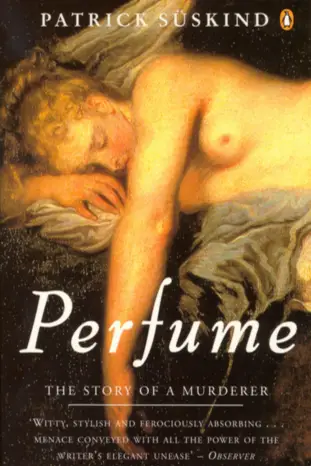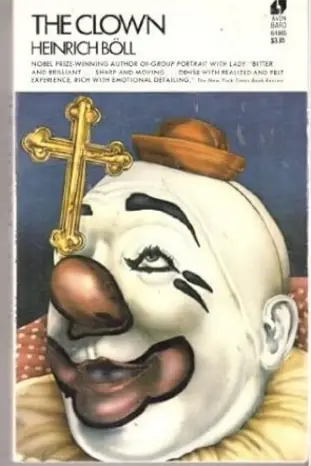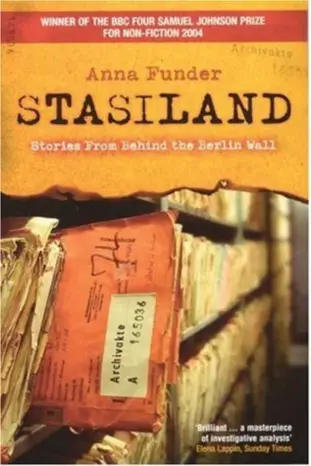
10 Best Chilean Books That Will Surprise You
What are the best Chilean Books? If you ask any literary buff about Pablo Neruda, Isabel Allende, and Roberto Bolaño, they will surely know about these literary giants.
There are few countries in modern history that have gone through as many major historical events as Germany. That is, if we set aside the discussion of the good and bad aspects of those events, for now.
I mean, from the horrors of Nazi Germany and the devastation of World War II to the division of East and West Germany, and the demolition of the Berlin Wall, the people of Germany have seen significant challenges and history.
Yet, out of this turbulent past, Germany is now a modern democracy, hub of innovation, and cultural richness. And what better way to understand this transformation than reading the books about Germany.
So, this list of best German books will explore the rise and fall of the Third Reich, the impact of the Cold War, and the reunification of East and West Germany. Through these German history books, we’ll see how Germany confronted its past. And how it changed its fate from “the sick man of Europe” to the Economic Superstar.


Johann Wolfgang von Goethe was/is one of the greatest figures in German literature and culture. He wrote scores of novels, poems, dramas, and scientific works throughout his long career.
Goethe’s contributions to German books like “Faust” and “Wilhelm Meister’s Apprenticeship” makes him a literary giant. Beyond writing, he was also a statesman, philosopher, and scientist. Basically, all those ingredients of the Renaissance man in the Age of Enlightenment.
The Sorrows of Young Werther is one of his best German novels of all time. It is about Werther, a sensitive young artist who falls deeply in love with Charlotte. She is, however, engaged to another man. Werther writes about everything in letters to his friend, Wilhelm.
Through those letters, we come to know that his infatuation with Charlotte turns into obsession. That obsession, in turn, leads to despair and self-destruction. The theme of unrequited love, and suffering makes this one of the good German novels.
The novel also sparked a cultural phenomenon known as “Werther Fever.” On a lighter side, it inspired European men to imitate and wear the same blue coat and yellow trousers. On the darker side, it allegedly inspired a wave of copycat suicides across Europe.
There’s another novel, Madonna in a Fur Coat, that is also about unrequited love that is bound to doom. I covered that novel in Turkish authors.

Hermann Hesse was/is one of the best German writers as well as painter of the 20th century. His works talk about spirituality, self-discovery, and Eastern philosophy. His contributions to German books earned him the Nobel Prize in Literature in 1946.
“Siddhartha” is one of the best German novels which is about young Indian Brahmin’s search for enlightenment. The novel is set during the time of the Buddha, who lived around 563 to about 483 BCE. And it follows Siddhartha’s spiritual journey as he leaves behind his privileged life to find inner peace. Interestingly, Buddha’s life journey is also very similar.
Throughout the novel, Siddhartha experiences asceticism (abstinence from worldly pleasures), sensual pleasures, and material success. He meets many teachers and philosophies, including the Buddha himself, but ultimately finds that true wisdom comes from within and through direct experience of life.
The exploration of Eastern spirituality and its contrast with Western individualism resonated deeply with readers. This book of Germany became quite popular especially during the counterculture movement of the 1960s. If you like to explore more about spirituality, I have covered everything in spiritual books.
There are many other German classics that I can talk about but I really want to discuss modern books about Germany. So, I have made an interactive table of classic German books. After the table, I cover modern books on German history. Also, if you dearly love classics, why not check the Russian literature books.
| Title | Author | Year Published | Description |
|---|---|---|---|
| Buddenbrooks & The Magic Mountain | Thomas Mann | 1901 & 1924 | Buddenbrooks: A novel depicting the decline of a wealthy merchant family over several generations. The Magic Mountain: A novel set in a sanatorium that explores time, illness, and existential themes. |
| The Trial & The Metamorphosis | Franz Kafka | 1925 & 1915 | The Trial: A novel about a man arrested and prosecuted by a mysterious authority for an unspecified crime. The Metamorphosis: A novella about a man who wakes up to find himself transformed into a giant insect. |
| Berlin Alexanderplatz | Alfred Döblin | 1929 | A novel that portrays the life of a small-time criminal in Berlin during the Weimar Republic. |
| Effi Briest | Theodor Fontane | 1895 | A novel about a young woman trapped in a loveless marriage, exploring societal norms and personal tragedy. |
| The Tin Drum | Günter Grass | 1959 | A novel about a boy who refuses to grow up, set against the backdrop of 20th-century European history. |

The Tin Drum is one of the best German novels of post-war German literature. It is the first part of Grass’s Danzig Trilogy with a vivid depiction of German history from an unusual protagonist. The novel’s blend of realism, surrealism, and dark humour has made it an amazing book of Germany.
Oskar Matzerath is a boy who decides to stop growing at the age of three as an act of rebellion against the adult world. It is his way of rejecting the society around him, especially as he witnesses the rise of Nazism.
Oskar uses a tin drum to express his emotions and as a means to control those around him. Over time, his drumming becomes a powerful symbol of his resistance and individuality. As fate would have it, his life intertwines with historical events, such as World War II and its aftermath.
He witnesses the horrors of war and the moral decay of society. Despite his decision to remain physically a child, Oskar matures mentally and emotionally and has to deal with guilt, complicity, and identity.
The Tin Drum is one of the unique books about Germany history that you should include in your best books to read in 2024 list. Tim Drum was also adopted into one of the best historical movies. It won an Oscar and also Palme d’Or at the Cannes Film Festival in France.

The End of Days is one of the best books about Germany, published in 2012. Jenny Erpenbeck, recently became the first German writer to win the Man Booker Prize for her novel, Kairos, in 2024.
However, she is best known for The End of Days, a novel that meditates on history, identity, and the possibilities of existence.
The novel follows five different possible lives of a single woman, each from a pivotal moment where her fate could change. It all begins with the death of a baby girl in a small town in Galicia in the 20th century.
In the following chapters, Erpenbeck rewinds the narrative to explore how different choices and events could lead to different lives. That means, her life in Vienna, Moscow, Berlin, and beyond.
As her life unfolds through different timelines, we see a broader historical context of the 20th century. It includes World War I, the rise of fascism, the Holocaust, and the Cold War. The woman becomes a writer, a mother, and a political dissident in various iterations, reflecting the history of Europe.
The novel remains one of the best books on German history in the form of intertwined history. Talking of intertwined stories, you can also check Amores Perros, one of the best Mexican movies.

I talked about The End of Days above but that kinda seems far fetched. So, why not talk about The End of Loneliness, instead? The End of Loneliness is one of the good German novels by Benedict Wells. Benedict Wells is a German-Swiss novelist who now spends most of his time in Zurich.
The End of Loneliness is one of the best German books about loss, love, and the search for identity. Once rejected by the publishers, the book became a bestseller in Germany for months. The book also won the European Union Prize for Literature.
The novel is about Jules Moreau, who, along with his siblings, is sent to a boarding school after the tragic death of their parents in a car accident. Jules’ struggles after losing his parents, the growing distance between him and his siblings, and a sense of belonging. Over time, he becomes increasingly isolated and struggles with loneliness that shape his relationships and life choices.
However, there’s a central figure in his life, which is his childhood friend Alva. Their complex relationship, filled with love, regret, and missed opportunities, is a focal point of the novel. Overall, The End of Loneliness is one of the good German novels on human condition, with a focus on how we cope with loss and the passage of time.

Things have been pretty serious and gloomy so far in our German books list. So, it’s time for a fantasy novel which is full of humour. And the writer is Walter Moers, who is the best selling German author in Europe, famous for Zamonia novels. How famous? Well, this novel alone has almost 25,000 Goodreads ratings.
This book of Germany is set in the fictional continent of Zamonia, a world full of bizarre creatures, strange landscapes, and fantastical events. Moers, who is also the illustrator, has made some illustrations in the novel.
Captain Bluebear is a blue-furred bear who recounts his adventures across 13½ of his 27 lives. Each life is a self-contained story, full of unique and often absurd challenges. There are stories like where minipirates raise him, and he survives a shipwreck by attending a school and battles a deadly spider, and so on.
As Bluebear lives his life, he encounters a host of memorable characters, including the talking waves, the giant Bollogg. And not to forget, Professor Nightingale, who teaches him the “oldest science of the world”—the art of lying.
All in all, this good German novel is full of outlandish escapades and quirky characters. The novel has an episodic structure, so each chapter takes us into the new adventurous world of Zamonia.
You can order the book on Amazon.

Perfume: The Story of a Murderer is one of the best German novels, published in 1985. It is a dark novel that explores the power of scent and the nature of obsession. Set in 18th-century France, the novel is both a historical fiction thriller and a psychological portrait of its protagonist, Jean-Baptiste Grenouille.
Jean-Baptiste Grenouille is born with an extraordinary sense of smell but no personal scent of his own. He grows up as an outcast due to a miserable childhood. However, he developed a fascination with scents and smells.
His obsession leads him to become a perfumer to create fragrances that can manipulate human emotions. However, his ultimate goal is to create the perfect scent that can capture human beauty.
To achieve this, he goes on a chilling quest to harvest the scents of young women, whom he murders in the process. His gruesome crimes lead him to believe that it will grant him immense power over others.
The book remains one of the best books about Germany on obsession. German film director Tom Tykwer also adopted the novel into a hit movie. You can order the book on Amazon.
There’s another magical realism movie but about cooking obsession. That movie is, Like Water for Chocolate, which I covered in the best Mexican movies.

It’s time for a classic German novel based on a true story. Every Man Dies Alone by Hans Fallada was published posthumously in 1947. It is one of the best books about Germany as it was written when Nazism collapsed.
It’s no surprise that this book of Germany is celebrated for talking about fear, oppression, and the moral dilemmas faced by individuals living under a totalitarian regime.
Otto and Anna Quangel are a working-class couple living in Berlin during World War II. After their son is killed in the war, they decide to resist the Nazi regime. Their resistance is writing anti-Hitler postcards and secretly distributing them around the city.
Despite the limited impact of their actions, the Quangels have a belief that they must continue to oppose the regime. Over time, the Quangels’ small acts of defiance attract the attention of the Gestapo, leading to an intense manhunt.
The great thing about this one of the good German novels is that it also weaves the lives of other Berliners. It shows the widespread fear, collaboration, and occasional bravery that defined life in Nazi Germany.
I recently covered another true story of a girl writing a diary during World War II. The book’s name is The Diary of a Young Girl by Anne Frank which I covered in Dutch books.

So much is written about the wars, revolutions, and the reasons behind those events. But, you will find few writings on what happens after the war, how society grapples with post-war time and everything. The Clown is one of the best books about Germany which examines post-war German society.
The Clown was published in 1963, and concerns the moral and spiritual state of Germany in the years following World War II. Heinrich Böll needs no introduction as he is one of the best German writers, and also a Nobel Prize winner.
Hans Schnier is a professional clown who finds himself at a personal and professional crossroads. After his longtime partner, Marie, leaves him due to religious differences and societal pressures, Hans spirals into despair.
The interesting thing about the novel is that it takes place over the course of a single evening. In that evening, Hans reflects on his life and relationships. Through his monologue, he gets disillusioned with the Catholic Church, the bourgeois values of his wealthy family, and the post-war society that prioritises material success over genuine human connection.
His identity as a clown—a figure who entertains others but is deeply unhappy himself—serves as a metaphor for his internal conflict. It remains one of the best books on German history for its critique of the social and religious conservatism in West Germany during the 1950s and 1960s.

This one of the best books about Germany is an exception because it’s written by Australian writer, Anna Funder. The build up and fall of the Berlin Wall is an important part of German history and this one is one of the best German history books.
This non-fiction book explores life in East Germany under the oppressive regime of the Stasi, the secret police. Although Anna Funder is an Australian author, her book is considered one of the most insightful accounts of the surveillance state that existed in the German Democratic Republic (GDR).
The book is based on Funder’s interviews with former East German citizens who experienced life under the Stasi’s watchful eye. These personal stories range from those who were persecuted by the regime to those who worked for it. So, we get a multifaceted view of the fear, paranoia, and courage that defined life in East Germany.
In addition to the interviews, Funder explores the lasting impact of the Wall and the Stasi on the lives of ordinary people after the reunification of Germany. She also examines the culture of silence and complicity that allowed the Stasi to maintain its grip on power.
Overall, Stasiland is one of the best books about Germany history that deeply explores the human perspective of the repressive regime. However, it’s the empathetic storytelling apart from research, which make this one of the best books on German history. You can order the book on Amazon.

One would need a lifetime to read the complex and get insight into German history. I could have mentioned academic and non-fiction German books throughout, but I have chosen novels.
After all, from these best German novels, we get to know the human stories better. After all, history is not just about geography, bravery, politics, but about people.
Speaking of the best books about Germany, I recently talked about how Germans have won 4 World Cups in the book, Tor! : The Story of German Football. I covered this book in the best soccer books.
So, if you have any particular favourite books about Germany, leave a comment!
Do you want global book, music, and movie recommendations straight to your inbox?
Sign up for the newsletter below!

What are the best Chilean Books? If you ask any literary buff about Pablo Neruda, Isabel Allende, and Roberto Bolaño, they will surely know about these literary giants.

We all know how English literature by English writers is easily accessible. And it has been for a long time because a large part of

Now that we’re entering the holiday season, it’s an excellent time for reflection. And what a year it’s been. I changed jobs, got married, and

